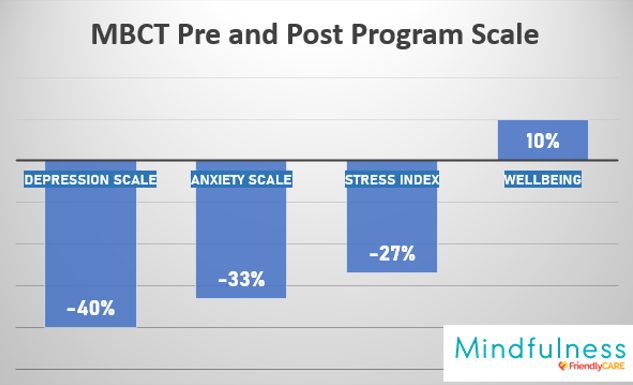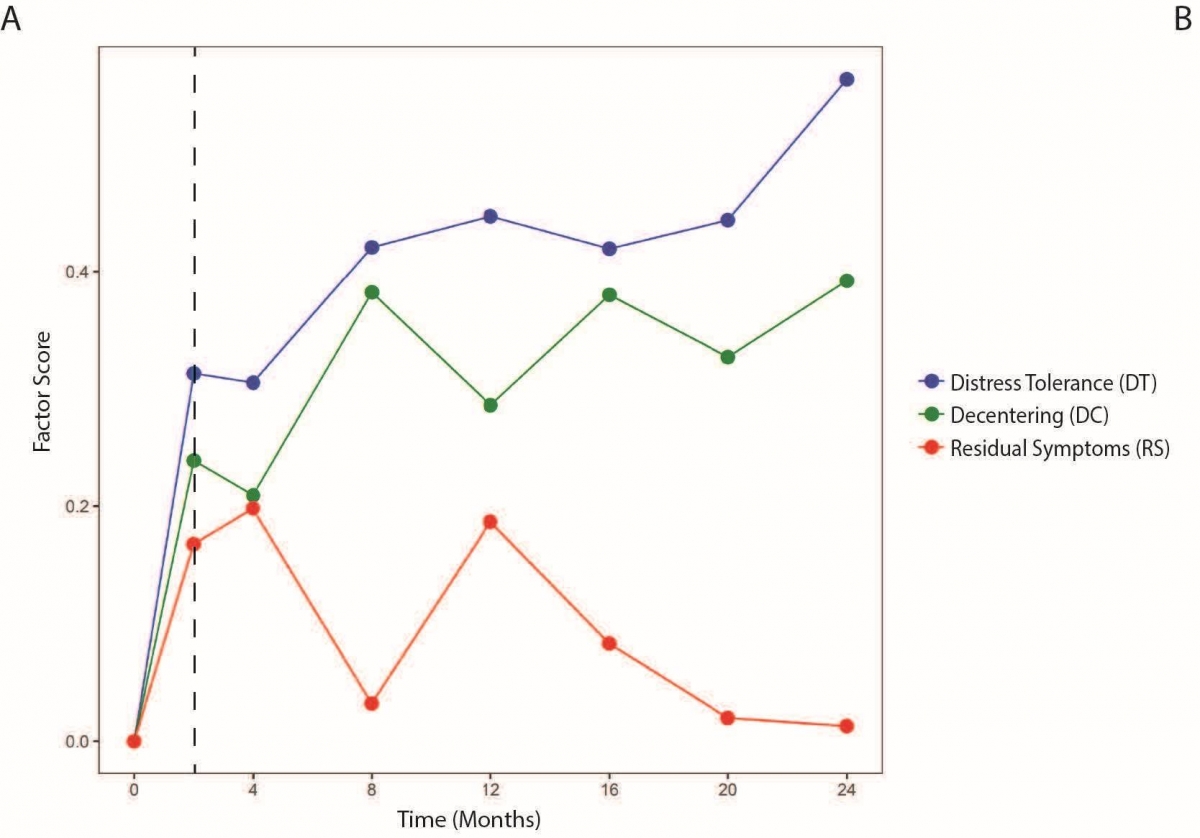FriendlyCare has been giving MBCT since 2018 and as of this time had gathered enough evidence that the program works in preventing depressive relapse and managing anxiety and chronic stress.
We observed the following in the 2020 Pre and Post Scales of participants:

- Decrease in Depression Scale by 40%
- Decrease in Anxiety Scale by 33%
- Decrease in Stress Index by 27%
- Increase in Wellbeing Index by 10%
OTHER RESEARCH AND STUDIES
The effects of mindfulness-based cognitive therapy on risk and protective factors of depressive relapse – a randomized wait-list controlled trial.
- Open Access
- Published: 05 June 2020
Elisabeth Schanche, Jon Vøllestad, Endre Visted, Julie Lillebostad Svendsen, Berge Osnes, Per Einar Binder, Petter Franer, and Lin Sørensen
Abstract
Background
The aim of this randomized wait-list controlled trial was to explore the effects of Mindfulness–Based Cognitive Therapy (MBCT) on risk and protective factors for depressive relapse within the domains of cognition, emotion and self-relatedness.
Methods
Sixty-eight individuals with recurrent depressive disorder were randomized to MBCT or a wait-list control condition (WLC).
Results
Completers of MBCT (N = 26) improved significantly on measures assessing risk and protective factors of recurrent depression compared to WLC (N = 30) on measures of rumination (d = 0.59, p = .015), emotion regulation (d = 0.50, p = .028), emotional reactivity to stress (d = 0.32, p = .048), self-compassion (d = 1.02, p < .001), mindfulness (d = 0.59, p = .010), and depression (d = 0.40, p = .018). In the Intention To Treat sample, findings were attenuated, but there were still significant results on measures of rumination, self-compassion and depression.
Conclusions
Findings from the present trial contribute to evidence that MBCT can lead to reduction in risk factors of depressive relapse, and strengthening of factors known to be protective of depressive relapse. The largest changes were found in the domain of self-relatedness, in the form of large effects on the participants’ ability to be less self-judgmental and more self-compassionate.

Learn more at: https://www.ncbi.nlm.nih.gov/pmc/articles/PMC7275325/
